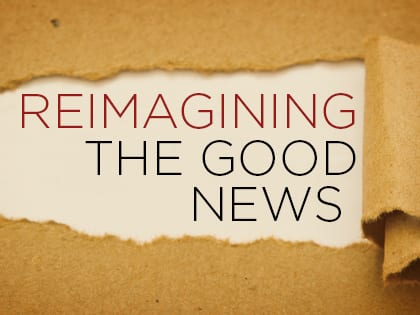I live in the Northwest. It’s known for coffee and microbreweries, for political independence and for keeping some of its cities (think Portland) “weird.” It has been described as one of the most unchurched regions in America.
My wife and I were called by God to move from Orange County, California, to Bend, Oregon, to plant a church—which we did in 2006. We desired to start and nurture a new church culture rather than simply inherit an old one. And we chose the name Antioch because the ancient church there was likewise committed to reimagining the good news of God’s kingdom in response to the Lord’s prompting.
The New Testament city of Antioch was on the trade crossroads of the Mediterranean; it was densely populated and ethnically diverse. It was the church at Antioch that first broke the mold of sharing the news of Christ’s redemptive death and life-giving resurrection to Jewish people only. At Antioch, they realized that the Holy Spirit was working in new ways to reach the Gentile culture in which they found themselves, and so they began to target and reach out to those outside the traditional ethnic and religious structures of Judaism. By the time Paul arrived to shepherd this fledgling community, he found himself in the position of needing to shape a radically new kind of church culture that blended together men and women from very different backgrounds and experiences.
But in addition to being ambassadors of God’s reconciliation to their own diverse neighbors, the believers in Antioch were also the “sending church” of most of the missionary endeavors described throughout the book of Acts. It was largely through this church that the early Christians began to fulfill the Lord’s charge (recorded in Acts 1:8) to take the good news to the ends of the earth.
We began to ask ourselves early in our church’s life, “Might God use us in a similar way?” We dared to believe that perhaps God could use us to carry his message and to shape culture in and beyond the small city of Bend, Oregon. We felt the need to avoid copying any other church, and to instead discover and lean in to the Holy Spirit’s particular plans for the time and place in which he had uniquely placed us.
We expected that this would require flexibility, creativity, imagination and innovation. It has, but along the way we came to realize that creativity is found in each of us, as part of the “image of God” in which we were created.
A Bit More of Our Story
Early on, Antioch was entrusted with a local Bible college and, in the fall of 2008, the Kilns College was born with a mission to change the world one student at a time. The vision was not simply to provide vocational Christian education, but to birth an innovative school that married a classical approach to education with a missions and social justice focus.
Through the college we hosted two successful citywide apologetic conferences. We brought in leading apologists from around the country, and together we offered a powerful defense of the reliability of the Gospel accounts of Jesus’ life, the historicity of the resurrection, the reconciliation of science, and the Bible and Christianity’s uniqueness in explaining reality and human experience.
During that season, the Lord convicted us that contemporary evangelicals had been failing to articulate—for at least most of the last hundred years—one of his essential attributes: his concern for justice. So rather than planning another general apologetics conference, we gathered a variety of Christian scholars, teachers, pastors and leaders, nongovernmental organizations, field workers and laypeople from every walk of life for a conversation about the theology and practice of social justice.
In February 2011 we partnered with World Relief to host the Justice Conference in Bend. We were awed and humbled by the response. In 2012, the Lord greatly multiplied the number of attendees and the overall impact as we moved the conference to Portland, Oregon. The Justice Conference has now become a worldwide conference with events in Philadelphia, Los Angeles, Chicago, Hong Kong, Melbourne, and upcoming in New Zealand, Holland and South Africa. It was the first evangelical conference to bring attention to justice through the lens of theology.
We found ourselves on a God-ordained journey to help change the conversation surrounding the issue of social justice in the evangelical church. And again, it required imagination and innovation. Our experiences reaffirmed for us the importance of creativity both in the message of reconciliation and in the currency and vocabulary of cultural transformation.
Why the Church Needs Creativity Today
Genesis 1:27 says, “So God created mankind in his own image, in the image of God he created them; male and female he created them.”
God creates. And he created us to be—like him—creative. Therefore, when people say, “I don’t have a creative bone in my body,” it is not only untrue; it is a denial of the image of God in us. Please understand this: Whereas artistic ability is a talent that some possess, creativity is part of what it means to be human.
Creativity is about responding to God’s image and call, and through that response exerting a creative influence and leadership that the world desperately needs. I believe that creativity is for all of us, and I think it’s one of the tools God has given us to carry out his purposes for the world. God made us creative so that we could navigate threats and challenges, laying hold of the possibilities around us.
Have you ever counseled a friend? Taught a child to search for animal shapes in the clouds above? Cultivated a garden? Named a dog? All of those things are creative acts, reflecting the creative image of our Creator.
Creators Versus Copiers
I believe there are two kinds of people in the world: those who create and those who copy.

